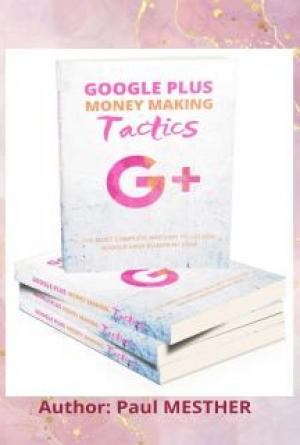LOOKS ARE EVERYTHING
A picture held us captive.
And we could not get outside it, for it lay in our language,
and language seemed to repeat it to us inexorably.--Ludwig Wittgenstein
Samantha is a sexy blind woman. She works at it. And I’m sure she would be happy to hear me say so. She had many affairs and sexual trysts before marrying, and she may be having them still when the opportunity presents itself. Which it does. I first met her at a national conference as a colleague. She did an interesting presentation about couples’ therapy and, speaking with her afterwards I learned that she practiced in the area where I taught clinical psychology. We stayed in contact and, some time later, I invited her to supervise one of my graduate students. She accepted and after several months, I invited her to come speak to our seminar of therapists-in- training about her practice of sex therapy (yes, she has made a career of it). She would also talk about the early experiences that had led to her choosing this profession and why she was so good at it. Samantha had an excellent reputation for getting results in her work. Of course, the entire class was immediately fascinated and looked forward to meeting her. Hers promised to be a unique perspective and everyone was eager to hear about it. We were not to be disappointed. On the scheduled day and one full hour after the scheduled time, Samantha swept dramatically into the classroom alongside one bedraggled graduate student. Samantha had enlisted Lara’s aid in helping her dress for the occasion and this turned out to be a long, involved process. Thus the hour delay. Samantha was eager to make just the right impression and announced flirtatiously to no one in particular that it was her prerogative as a woman to be late.
Poor Lara, the graduate student in question, appeared completely unraveled and on the verge of tears, knowing that the entire class had been kept waiting. Samantha, on the other hand, was cool and in command. She immediately demanded and got the attention of the entire room, and she began speaking without waiting to be introduced by me or by Lara. We all struggled to regain our balance, although I’m not sure that anyone accomplished that for more than a moment during the course of Samantha’s visit. I know I tried to regain control of my class with only moderate success. Samantha has been blind since birth, as the result of having spent her first days in an incubator, a tragic circumstance that blinded so many premature babies until the cause of this misfortune—high oxygen levels—was discovered in the mid-1950’s. Despite her lack of sight, Alexandra has managed to learn the special skill that certain women have in making a grand entrance. Although she couldn’t see them, all eyes immediately turned toward her in any room she entered. She not only knew this, she reveled in it. Hers is a kind of “in-your-face” refusal to be made to feel inferior to sighted women. Samantha is forty-two years old; her skin is one of the colors that society names white, her sexual relationships of the nature that it names heterosexual. She is tall and slender with long light brown hair. On the day she came to class, she was dressed in a chic reproduction of a peasant blouse and skirt, one that no peasant could afford. In the course of the classroom conversation, she let us know that people consider her attractive and often make a special point of telling her that she is extremely good looking “for a blind person.” You can see her pride when she says this. She revels in her own mastery of the sighted world and its definition of female attractiveness. She is exceptional. Samantha has been married for several years to a sighted man, also an accomplishment in her world. She has snagged top honors in the mating game. She was about to demonstrate to our class almost everything about femininity and gender that we had discussed in earlier classes and that all the women in the room already knew in our bones. Her way of learning it was so much more conscious and deliberate than that of any of the sighted women in the room that it was a bit startling at first. I think it is safe to say that, by the end of the class, the women in the room felt more similar to her than they did different. Although she has never seen herself or another woman, Samantha has mastered the art of femininity. Gender really matters to her. It is clear she is a sexy woman first, a sexy blind person second. How does Samantha accomplish this feat? She leads with her sexuality and with a flirtatious charm. Unlike Isabel, she does not wait to be approached, but puts herself right out on display for everyone to see and admire. It is a kind of pre-emptive strike. Also unlike Isabel, who strives to become invisible, Samantha makes sure that she is the center of attention in any room that she enters, as visible as possible. One strong influence, she reports, is that she grew up, like many other girls of her generation, reading Seventeen magazine, the Braille version of course. Just as Jesse had access to Playboy as a kind of training manual in becoming a man, Samantha studied the pages of Seventeen to learn to be a girl and then a woman.
As the pages of Seventeen told her, a woman adorned herself until her appearance was as stunning as the first flower of springtime. A man had only to look at her with appreciation and desire, to decide whether or not to pluck this flower in full bloom. For them both, this was the basis of the gender contract. And it is one aspect of the sighted gender contract with which these blind men and women struggle to comply. They are both playing a game of blind man’s bluff, a game that requires additional team members to help them play it well. Jesse has his visual memories, Samantha her teachers and friends. Both have the written media and auditory versions of the visual media to give them the necessary prescription. Samantha had an additional nudge.
She was raised in an Irish Catholic family with three brothers, three sisters, and two mightily overworked parents. These pious people readily accepted her blindness as “the will of God.” They lived in an Irish Catholic working class community in a small New England city, where there was an entire culture built around the church. This included celebrating holidays and religious festivals together, sending the children to the church schools, and holding the priests and nuns, many of whom were from their own families, in high reverence as servants of God. In these schools, the little Catholic girls were taught to be pure and virtuous, to yield to the teachings of the clergy, and, most important, to safeguard their precious virginity for marriage and procreation. That is the formal teaching. There is an informal one that is much fiercer and that the world has been horrified to learn about, except for those fathers of the church who knew all along and kept this dirty secret to themselves. Samantha’s parents dutifully sent her to these religious schools and the family attended mass every Sunday. In fact, it was their one outing together in a demanding work-filled week. There all the children of the local families were baptized and confirmed. In later years, most of them either married each other or God at the very same altar. It was a holy sanctuary in otherwise busy, secular lives. In that supposed sanctuary, Samantha underwent another ritual of baptism into holy femininity. She was sexually molested by her priest when she was seven years old. It continued after classes for several years, this violation of the holy sanctuary of her body and soul. Sadly, so many girls and boys undergo this cruel initiation ritual that it seems almost as ubiquitous as the official kind of baptism. How do they come to understand this violation by those whom they have been taught to trust as much as God himself? There are a variety of unsatisfactory ways to compromise with reality. Many use their bodies rather than their minds or hearts to make sense of this otherwise senseless experience. They hide their conclusions from no one but perhaps themselves. Some become asexual, but many more become hypersexual, and the females become what most of us would consider to be hyper-feminine. This version of femininity carries within itself the wound to itself. These girls and women lead with their sexuality, almost as if the process of initiation confers on them a certain power over men rather than the opposite. Many can even describe this distorted sense of power. Such a sexualized approach is almost a sure sign of an early violation. It is a child’s solution to an adult problem. Such women learn to equate their value and power in any relationship with their command of sexuality. They have learned their lessons well and keep repeating them as another child would the multiplication tables, believing that their sexuality gives them a magical "after the fact" power, as if they were actually in charge of their own molestation.
Samantha did not say any of this to us. She only enacted it. Yet, in my many years of practicing psychotherapy, I have had this discussion or seen it performed without words too many times not to recognize it. What Samantha did say, however, in the course of the classroom discussion, was that she connects danger with attractiveness. This requires no nuanced psychological interpretation. It is just too obvious and too bad. Early experiences of violation are always formative and people make sense of them in a finite number of ways. Samantha’s is not atypical. Among women who organize their lives around sexuality, many have been molested, raped, or otherwise sexually traumatized. Their behavior is a failed attempt at mastery through enactment and it serves to keep the injury alive just as it keeps it out of awareness. Samantha’s history led her to focus on mastering “sexiness” and not worrying so much about blindness. The blindness made it just that much more complicated, but was only a modifier in her quest to be “sexy.”
Samantha herself said nothing more than that she found scents like men’s colognes and shaving cream stimulating. It does not take a psychologist to guess where she first smelled these. I wish that it were a rare enough occurrence that it did require some digging and interpretation, but it is so common as to be almost obvious. Of course, I did not choose to pursue the subject in front of the class that day. I was not sure that Samantha would feel free to say “No” if I asked her permission first, not sure if she knew how to say “No” in such a circumstance. And I could not judge her feelings by noting a flicker in her eyes or a nuanced expression move across her face. Nor could she judge my intentions in that same way. I decided to leave it to Samantha what she did and did not reveal to us.
What she decided to discuss next easily captured everyone's interest for the rest of the class session. She offered us a detailed description of the fine-tuning of blind femininity. Samantha had decided to protect her parents from the knowledge of what had happened to her on the church altar. She could clearly see what she could not literally see, how overburdened they already were, and decided to bear her cross herself. Silent, but not passive, she began to plan her own destiny in this world with the tools that she had been given. She asked her parents to send her to charm school for blind girls. I don’t know how she found out about such schools, but they are apparently not uncommon. I have heard tales of this kind of finishing school from sighted women. They are the slow learners, requiring a special school and a major in feminine charm. At charm school Samantha would learn that there was a special way for a girl to walk and sit, to move and speak. This is exactly what she wanted to know. She practiced walking with a book on her head so she would stand up straight and not “bounce around.” Samantha’s mother had complained that she walked “like a football player,” but of course Samantha had never seen a football game and had no idea what this







